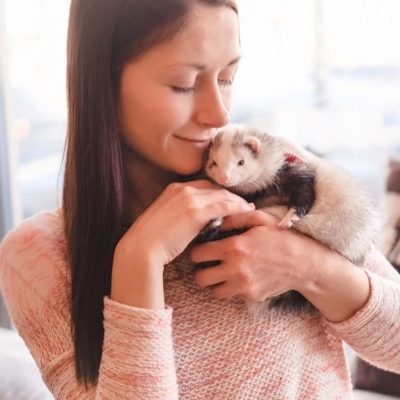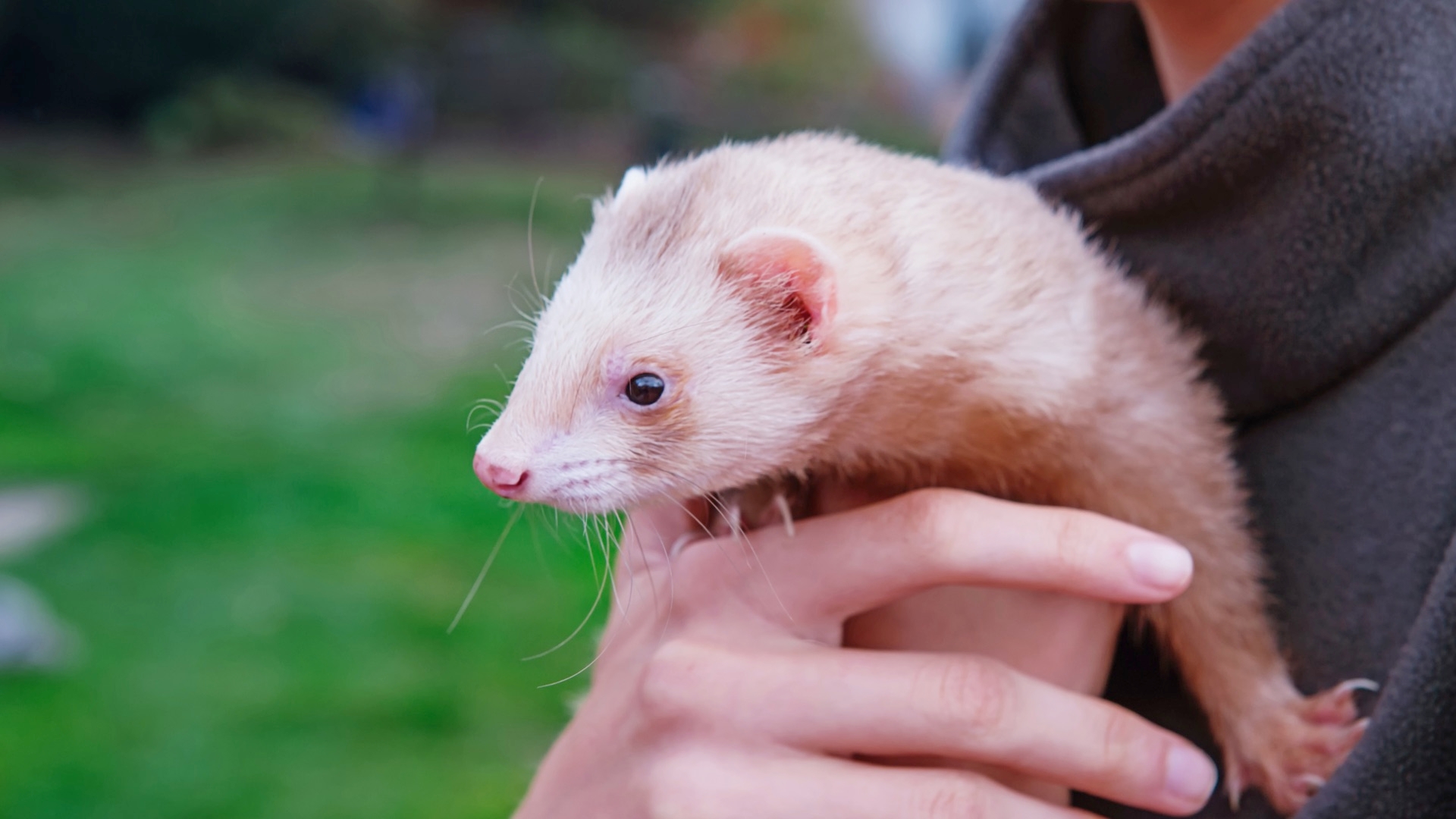How To Stay Healthy Around Ferrets:
Summary:
Before adopting or buying a pet ferret, make sure a ferret is the right type of pet for your family. Be aware that ferrets can sometimes spread germs that can make people sick. Young children are also at higher risk for bites from ferrets and should never be left unsupervised around ferrets.


How to stay healthy around pet ferrets
Before adopting or buying a pet ferret, make sure a ferret is the right type of pet for your family. Be aware that ferrets can sometimes spread germs that can make people sick. Young children are also at higher risk for bites from ferrets and should never be left unsupervised around ferrets. Because of this, ferrets might not be suitable pets for certain households. Ferrets are not legal to own in some areas, so make sure to check local laws before adopting a buying a pet ferret.
Wash your hands
-
Wash your hands with soap and running water:
- After contact with ferrets
- After contact with ferret saliva or poop
- After handling your ferret’s food or supplies
- Adults should supervise hand washing for children under 5 years of age.
-
Use hand sanitizer if soap and water are not readily available.
Prevent ferret scratches and bites
Germs can spread from ferret bites and scratches, even if the wound does not seem deep or serious. Ferret bites can become seriously infected or spread rabies, especially if the ferret is unvaccinated and has had contact with a rabid animal. Young children are especially at risk for bites from ferrets.
How to prevent ferret bites and scratches
- Avoid bites and scratches from ferrets. Ferret bites can become seriously infected or spread rabies, especially if the ferret is unvaccinated.
- Be cautious with unfamiliar animals. Approach ferrets with care, even if they seem friendly.
- Do not play roughly with ferrets, especially when they are young. This will lead to fewer scratches and bites as animals become older.
- Always supervise children around ferrets.
What to do if you are bitten or scratched by a ferret
Many types of germs can be spread from animal bites and scratches, even if the wound does not look very bad. Unvaccinated ferrets are at risk for rabies and can spread rabies to you if they become infected.
If you are bitten or scratched by a ferret, you should:
-
Wash the wound with warm, soapy water immediately.
-
Seek medical attention if:
- If you are unsure if the ferret has been vaccinated against rabies.
- If the ferret appears sick or is acting unusual.
- The wound or injury is serious (uncontrolled bleeding, unable to move, extreme pain, muscle or bone is showing, or the bite is over a joint).
- The wound or site of injury becomes red, painful, warm, or swollen. (Especially if the person bitten is 5 years of age or younger, elderly, pregnant, or has a weak immune system.)
- It has been more than 5 years since your last tetanus shot.
-
If you were bitten by a ferret you don’t know, report the bite to animal control or your local health department.
-
If possible, contact the owner and ensure the animal has a current rabies vaccination. You will need the rabies license number, name of the veterinarian who administered the vaccine, and the owner’s name, address, and phone number.
-
Make sure a veterinarian sees the ferret and contact your local health department if the ferret becomes sick or dies shortly after you were bitten.


